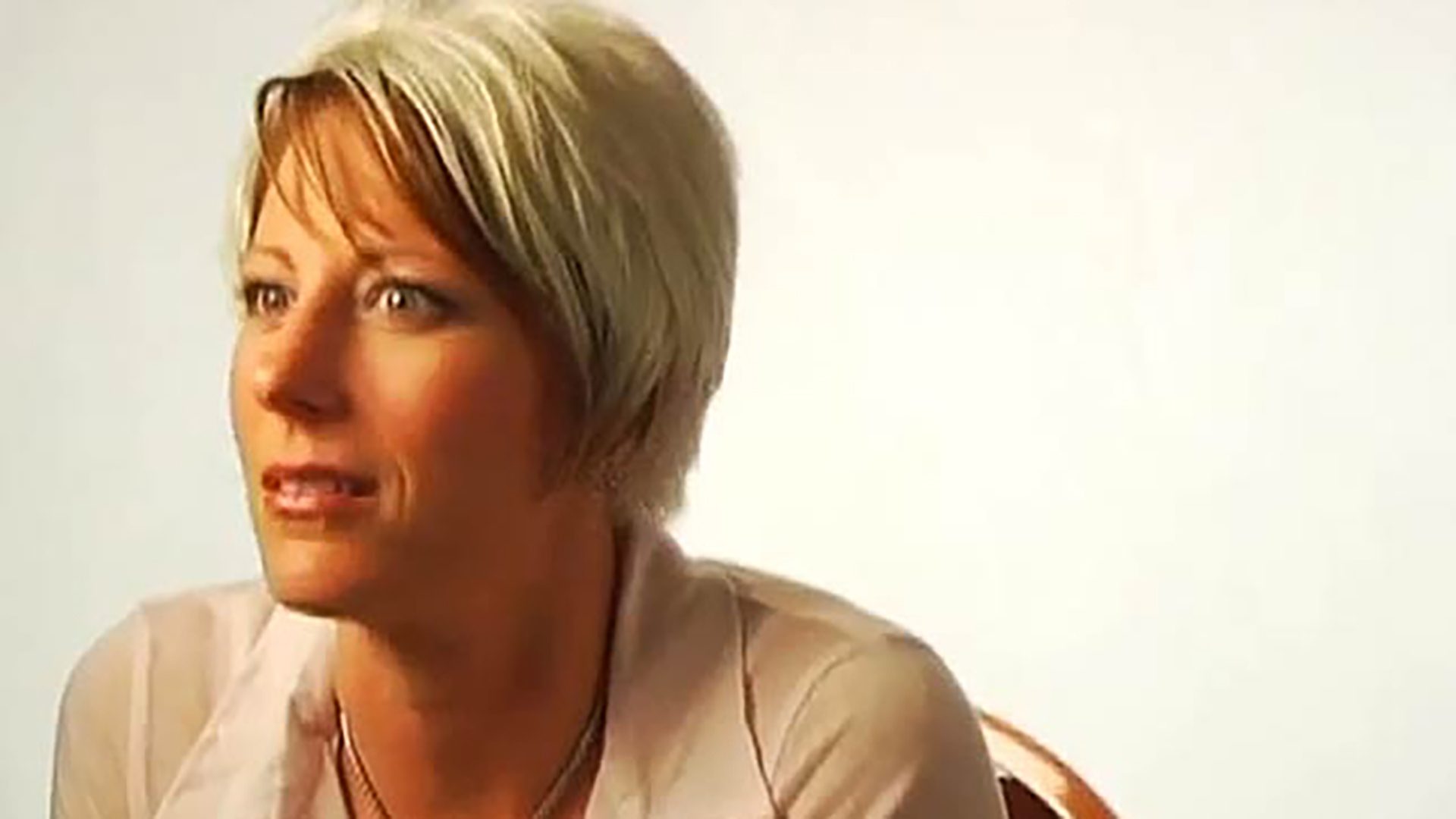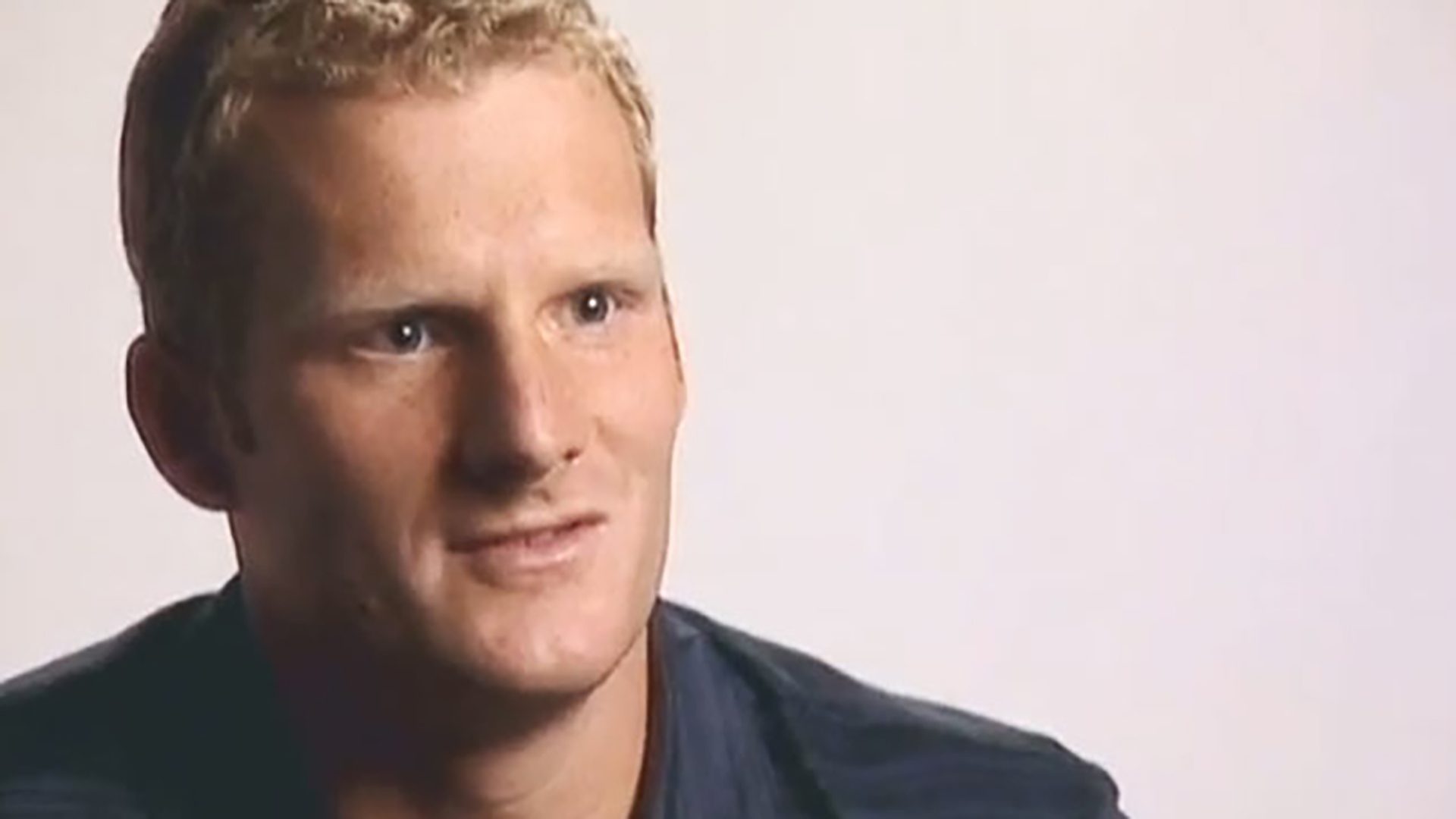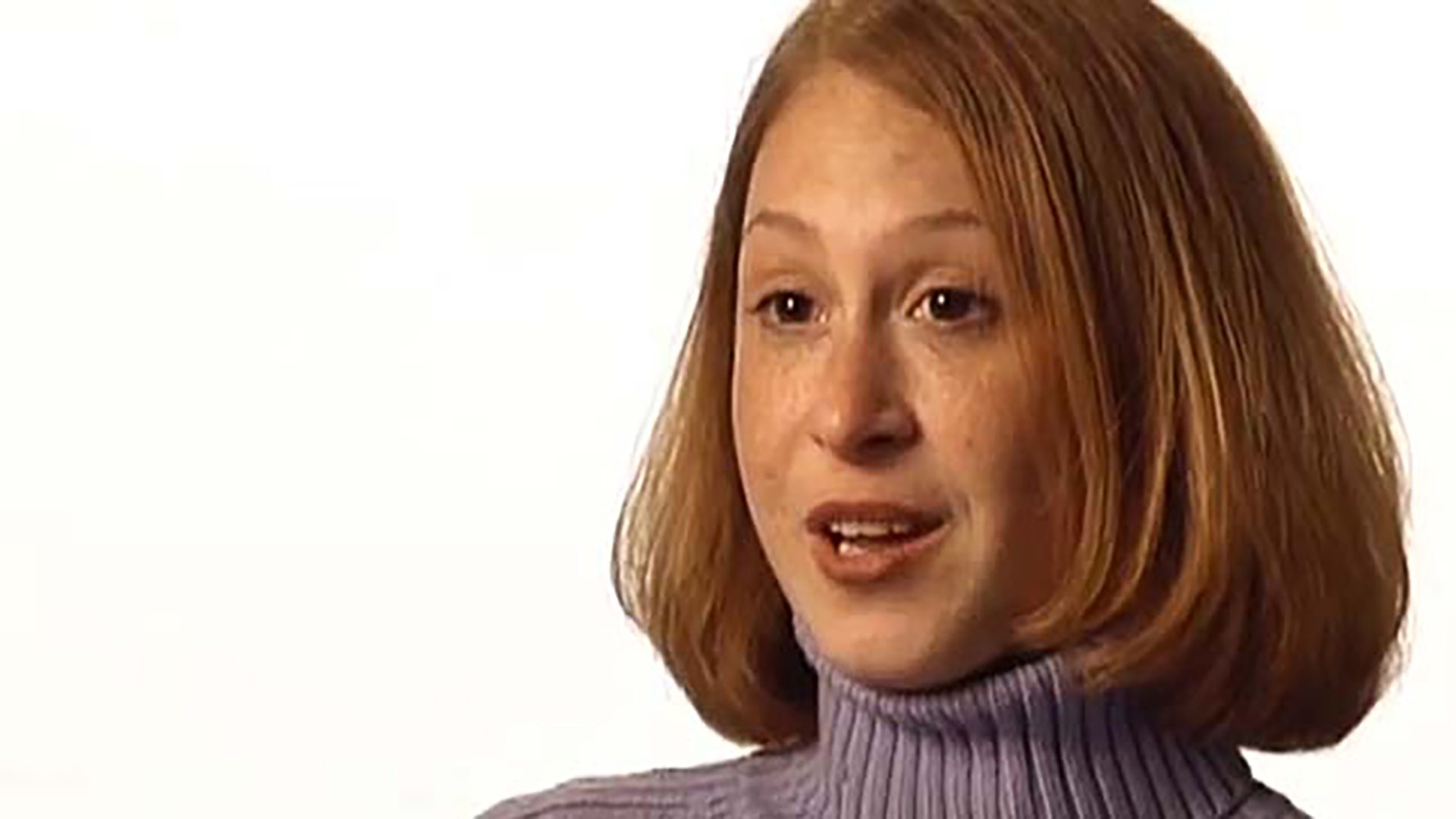Survivor Interview – Lisa O.
Lisa is a melanoma survivor. She discusses participating in a clinical trial, relationships with her family members, and practicing healthy behaviors.

I became a survivor on November 19, 1998, when I was diagnosed with melanoma.
My gynecologist was the one that discovered I had a mole that was very abnormal. It was in my pelvic region. I had been ignoring it for about four months, and watching it grow continually. She sent me immediately to a dermatologist, and I could tell by the look on her face there was something wrong. From there, she did an emergency biopsy. Within 24 hours, I was told I had melanoma. She referred me to a specialist. I walked in the door and the first thing he said to me, “We’re going to do a sentinel node biopsy on you.” He was one of the pioneers on the study of this. I have a surface spreading melanoma. It is less likely to get into the major organs. So he said, “Eighty percent chance that it’s not in your lymph nodes but just to be sure, we’ll do this,” because I was a Class 3 at that time. He found it on both sides. I was more devastated at that than I was when I was diagnosed because I had no fear. I totally didn’t think that it was going to be in my lymph nodes. That meant major surgery.
I had the lymphadenectomy. They took out all my lymph nodes on both sides. I had forty staples in the groin. I had to wear support hose, which were really fun to get on. I had my legs elevated, so I wouldn’t get swelling. When you take out your lymph nodes, you have lymphedema. I’ve seen it more on breast cancer survivors, where they get the swollen arms. But I had a real high potential to get it especially because I had them out in both sides of my groin. My legs swelled, but I followed the directions one hundred percent. I slept in the tent hose for four months with my legs elevated. I wore those stinking support hose. I try to put them on now and I’m like, “How the hell did I put these on for a year?” But I tell you what, it paid off. I did not get a single bit of lymphedema, which is very, very lucky. I did, however, probably gain thirty pounds.
I was in a clinical trial, which was awesome because that was how I was able to get the oncologist that I had. I didn’t have to pay for my meds whatsoever. So I got about $50,000 in meds at no charge. None of my office visits were charged anything. I had to pay for other medications but minimal compared to what it could’ve been. I got really lucky. In the clinical trial I was on, they were trying a prolonged treatment as opposed to the traditional one-year treatment. In the two-year one, you did two times a week for two years. That’s the one I wanted. I’ll take it for two years, if I don’t have to take that extra time off of work, and I don’t have to be really sick. It worked from lottery drawing. I didn’t get the two-year, and I was devastated. I was like, “Oh, crap. This is going to be really hard.” A couple of months after, I started my treatment. I was really glad I didn’t get the two years. Once that one year was up, I was so happy that my year was up. It was such a day of celebration. Sometimes I felt really guilty about the fact that I got off easy compared to some of the other people.
I was on interferon for a year. The one thing that was really hard about interferon is it caused depression. I talked to the oncologist, and they put me on Prozac. I was on it for about five weeks, and there wasn’t a lot of change. But I was really nervous about going on Prozac because I’d never had to be on an antidepressant before. But the thing that helped console me was the fact that I was medically depressed. I was still having major breakdowns. I was still having a lot of anxiety. I was still having the depression, and I was having a really hard time getting out of it. They took me off the interferon for a week and he says, “If you can’t snap out of this, we’re going to have to take you off the trial. You can’t stay on the interferon.”
Sunscreen, sunscreen, sunscreen. I have to admit this year training for the triathlon; I’ve been outside a lot more than I usually am. I’ve got the whitest legs you’ve ever seen. And it’s okay. One of the causes of my melanoma was a tanning bed. I actually fell asleep in a tanning bed and the timer was stuck. I was in there for two hours and forty minutes. I had second degree burns, and I blistered within a half-an-hour. I was one hundred percent fried. So I am pretty adamant against tanning beds. If anybody says anything around me about a tanning bed, I’m like, “Shut up. I don’t want to hear it. Don’t tell me because I’m gonna tell you my story.” I guarantee you; there are a thousand people out there that have heard my tanning bed story.
My family was wonderful. They are from Washington, but my parents and my sister came to California. My sister and my mom stayed for two weeks to take care of me because I couldn’t even walk. I am really lucky. They say something good comes out of everything, and I totally believe that. I have never been so close to my family as when I was sick and they were there for me. I had no idea how strong my mother was until I saw her in action. I’d never really seen that side of her. It’s really hard being the person that’s sick because you see how much pain your family’s in. You’re the reason that they’re in so much pain, and they can’t help you. I felt helpless because I couldn’t reassure them. I almost would’ve rather been the person that was caring for somebody that was sick than being the sick person. It was weird being in that role. I’d never been in that role, and it was very hard to see my family try to help me but not know what to do. But they did great. They were totally there for me.
Ray and I grew up together in Cashmere, which is a little town in Washington. We got together at our 20-year reunion. I was done with my treatment. I was well on my way to healing. I had lost all of the weight that I’d gained, and I felt pretty good. He had heard that I had had cancer, so he wondered how I was doing. By the time that he and I got together, I was better about body image issues. When you’re naked in front of somebody for the first time, and you’ve got these scars that have disfigured your body, it’s hard because you’re aware of them and you know that they can see them. But he already knew about it, and I don’t think that was ever an issue with him. But I have to say that when it first happened, that was a really hard thing. When the scars were really fresh, I’m like, “Oh, God. These better fade.”
There was a period of time where I gained a lot of weight and the scars were a lot more prevalent. When you’ve gained weight, your skin’s not flat. You’ve got a little bit of bulging here and there. I knew I gained weight but I didn’t really attribute it to that until I started losing weight and thinking, “It doesn’t look as bad as it did ten pounds ago.” But now that I’ve been training for this triathlon, I’ve been feeling a lot more confident because I know I’m in even better shape. I have to wear a bathing suit. If I want to train for swimming, I can’t wear shorts over my bathing suit because that’s too much resistance. I’ve really gotten used to going without it. That was a hard thing to get used to.
Be strong. Let the people that want to help you, help you. People want to love you. People want to help you as much as they can. Let them be there for you. Let people in. Allow yourself to be vulnerable. Don’t try to do it all yourself.
Live strong says where I’m at in my life right now. It’s been almost six years since my diagnosis, and I am the healthiest I have been in years. Live strong means: keep your head up. Look at Lance. Look what he’s done. He is an awesome inspiration because all the cancer survivors were here before Lance; we’ll all be here after Lance. But Lance has opened the door and made people aware of all of us out here. I admire him for that. I truly do. How do I live strong every day? Lately, it’s been training for a triathlon. That’s how I live strong. I work hard. I play hard.
I am Lisa Boushay Owmby, and I’m a six-year melanoma survivor.

